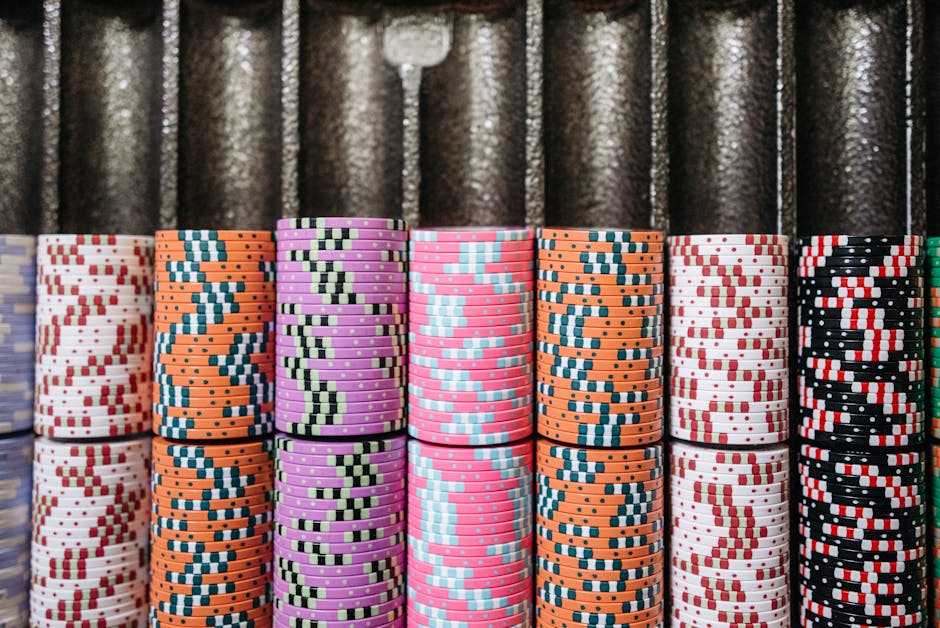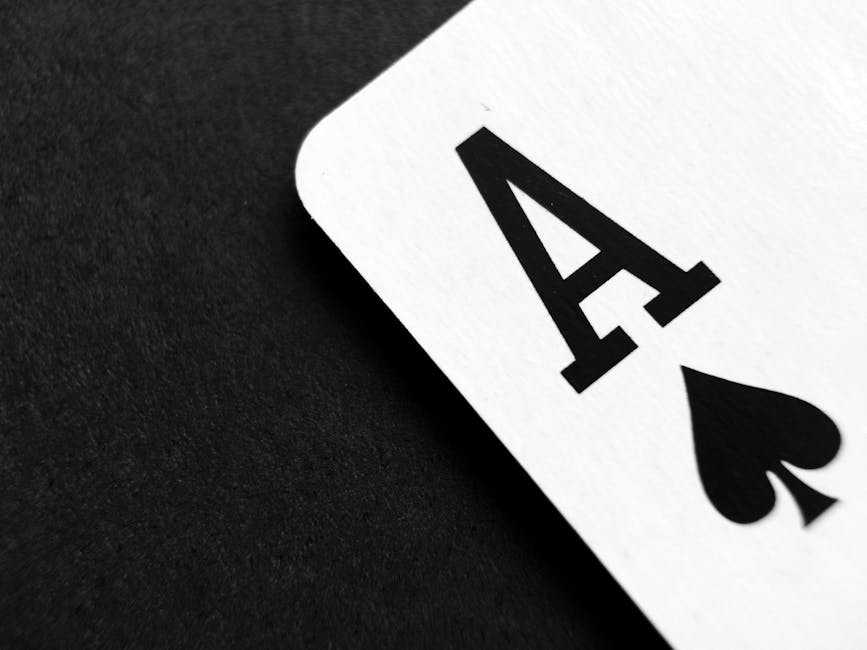Why Responsible Gambling Matters
Gambling can absolutely be part of a healthy lifestyle—when approached with balance and awareness. Like other forms of entertainment, it offers excitement, social opportunities, and the thrill of chance. But unlike most pastimes, it comes with real financial and emotional stakes.
Gambling as Entertainment
- At its best, gambling is a fun diversion—a way to test luck, enjoy downtime, or spend time with friends.
- It’s one of many leisure activities, much like watching movies or attending a sports event.
- When approached with limits, it can be a guilt-free way to unwind.
The Fine Line Between Fun and Risk
While gambling can be enjoyable, it’s easy to slip into risky behavior. That moment where it stops being fun and starts being stressful? That’s the danger zone.
- Chasing losses, ignoring time spent, or spending beyond limits are red flags.
- What begins as light entertainment can shift into compulsive behavior.
- Recognizing that line—and staying well behind it—is vital to staying safe.
Personal Boundaries = Long-Term Enjoyment
Setting clear personal boundaries is the core of responsible gambling. These limits aren’t restrictions—they’re protective tools.
- Financial and time limits help you enjoy the game without fallout.
- Boundaries also help prevent emotional decision-making and impulsive betting.
- Ultimately, the goal is to engage with gambling on your terms, not be controlled by it.
Understand Your Reasons
Before you place a single bet, it’s important to ask yourself a foundational question: Why am I gambling? This self-inquiry—not just once, but regularly—can make a big difference in how you relate to gambling and whether your habits stay healthy over time.
Know Your Motivation
Not all gambling is unhealthy. In fact, many people participate simply for entertainment. That said, it helps to understand what’s really bringing you to the table or the screen. Are you looking for a thrill—or an escape?
Here are some common gambling motivations:
- For fun and excitement: You enjoy the games, the risk, and the suspense
- To win money: You focus on the chance of hitting it big or making a quick profit
- To relieve stress or boredom: You’re trying to escape routine or emotional discomfort
- Out of habit: Gambling has become part of your routine without you realizing it
Being honest with yourself about what’s driving your behavior helps you stay grounded—and puts you in a better position to set realistic limits.
Emotional vs. Strategic Gambling
There’s a key difference between gambling with a plan and gambling on impulse.
- Strategic Gambling: You budget beforehand, play within limits, and see it as leisure.
- Emotional Gambling: You play to numb, distract, or chase losses. This mode often leads to poor decision-making and spiraling habits.
Ask yourself:
- Do I feel in control when I’m gambling?
- Am I trying to change my mood or fix a problem with gambling?
- Have I gambled despite promising myself I wouldn’t?
If you find emotional triggers at play, it may be time to reassess your relationship with gambling—and seek support if necessary.
The Power of Honest Self-Assessment
Being proactive about your intentions can shift your entire approach.
- Set time aside each month to reflect on your habits and emotions around gambling
- Keep a journal or simple notes tracking when, why, and how you gamble
- Notice any shifts in your mood before, during, or after gambling
Honest self-assessment isn’t about guilt or judgment. It’s about staying connected to your values and ensuring your gambling behavior stays in check. When you actively understand your reasons, you’re not just reacting to impulses—you’re making conscious decisions.
Setting Financial Limits
Gambling isn’t supposed to be a way to make ends meet—it’s entertainment. The same way you’d budget for eating out or seeing a movie, gambling needs a cap. That starts with a mindset shift: it’s leisure, not income.
First, define a strict allowance that’s separate from your core expenses. Rent, food, bills—those come first. What’s left over is your “fun money,” and only a slice of that should touch gambling. If you’re dipping into savings or covering losses with next week’s paycheck, that’s not budgeting. That’s a red flag.
One way to stay in check is by physically separating funds. Use a prepaid card. Set up a separate e-wallet. Whatever it takes to make your gambling money a distinct pool—not just a number in your main account.
Also, take advantage of the tools most platforms already offer. Deposit limits are your friend. So are loss caps, time alerts, and self-exclusion settings. Using these isn’t about weakness—it’s about having structure. You’re protecting your time, your money, and frankly, your peace of mind.
Bottom line? Set your financial boundary like you mean it. Then stick to it like non-negotiable ground.
Setting Time Limits
There’s a big difference between a structured gambling session and a drifting one. When you sit down with a plan—say, 45 minutes on the slots or one evening poker tournament—you’ve defined the edges of your experience. Without that structure, it’s easy to lose track of time and start chasing outcomes instead of enjoying the game.
Tools help keep you tethered. Many online platforms let you set time alerts or auto-logouts. Use them. Offline? Set a simple timer on your phone and step away when it goes off. Breaks matter too. A five-minute breather every hour keeps your head clear and helps you reset any temptation to double down out of frustration or boredom.
What’s underrated? Planned stop-points. A hard end time tells your brain the session is closed, regardless of win or loss. It’s not about cutting fun short—it’s about knowing when to walk away, while still feeling okay about it. This small habit builds long-term control, which is where real enjoyment lives.
Recognizing Patterns and Slipping Points
It rarely starts with an all-night spiral. More often, it’s the ignored signs: staying five minutes longer, topping up your balance just a little more, chasing one more win. These small rule-bends add up. Over time, they reshape your behavior and blur the edges of control.
Watch for signals: are you gambling alone more often? Hiding how much you’ve spent? Getting restless when you can’t play? These markers matter. And they often appear before bigger consequences hit.
Tracking your habits regularly—not just what you win or lose, but how often you play, when, and why—keeps you honest. A simple journal, app tracker, or weekly check-in can reveal creeping patterns before they become a problem.
Left unchecked, light entertainment becomes a financial or emotional drain. Spotting the shift early is your best defense.
(Learn more: Understanding the Signs of Problem Gambling)
Using Support Tools + Accountability
Responsible gambling isn’t just about individual discipline—it’s also about smart support systems. Fortunately, there are more tools than ever to help you stay in control. Whether it’s software, built-in features, or simply being open with others, external accountability can make all the difference.
Digital Tools That Support Safer Play
Many platforms offer tools designed specifically to help players maintain control of their habits:
- Deposit limits: Set daily, weekly, or monthly caps to manage spending.
- Time reminders: On-screen prompts that let you know how long you’ve been playing.
- Self-exclusion features: Temporarily or permanently block access to gambling sites.
- Third-party apps: Tools like Gamban or BetBlocker restrict access to gambling sites across devices.
These features allow players to set personal boundaries ahead of time—while they’re still thinking clearly.
Lean on Your Support Network
It can feel isolating to struggle with gambling behavior. But reaching out improves both awareness and accountability. Don’t underestimate the power of a conversation.
- Talk with trusted friends or family members about the limits you’re setting.
- Share your goals out loud—for many, verbalizing intentions creates a greater sense of responsibility.
- Consider group chats or check-ins with supportive peers who can remind you of your boundaries.
Professional Help and Helplines
If you need more structure or guidance, help is always available:
- Responsible gambling programs run by casinos and online platforms offer tailored guidance.
- Professionals such as counselors trained in gambling-related issues can help uncover deeper patterns.
- Helplines provide anonymous, judgment-free support—available by phone or chat in most regions.
Taking the step to seek support isn’t a weakness—it’s a strategy for long-term enjoyment and balance.
Whether it’s an app, a conversation, or a program, getting support is one of the strongest moves you can make.
Final Thoughts: Stay in Control
Gambling, when approached with awareness and boundaries, can remain an enjoyable activity. But it’s critical to remember the cost of losing control goes far beyond money.
Gambling Should Never Cost Your Peace of Mind
What begins as entertainment can quickly spiral into anxiety, stress, or financial strain if guardrails aren’t in place. Ask yourself:
- Do you feel guilt or regret after gambling?
- Are you hiding how much time or money you spend?
- Has gambling started to interfere with other responsibilities or relationships?
If the answer is yes, it’s time to reassess the balance.
Setting Limits = Gaining Freedom
Setting boundaries isn’t about limiting fun—it’s about securing it. Limits give you:
- Control over your time and money
- Mental clarity when engaging with the activity
- The ability to walk away without emotional fallout
Without limits, gambling can quickly shift from amusement to harm. With them, enjoyment becomes sustainable.
Play the Long Game
Sustainable gambling means enjoying the activity today without risking tomorrow. To stay in the game for the long run:
- Embrace tools and habits that keep you grounded
- Reflect regularly on your motives and experiences
- Make fun—not escape—your main reason to play
Being a smart, responsible gambler isn’t restrictive—it’s empowering. It means protecting your time, money, and your peace of mind.
Gambling isn’t about the next big win—it’s about feeling good about how you play, every time you do.


 Otis Rogerstics is a dedicated author at GambleFitnessSplash known for his sharp insights on the relationship between technology, sports, and healthy living. His work focuses on practical strategies and digital tools that help readers improve both performance and balance.
Otis Rogerstics is a dedicated author at GambleFitnessSplash known for his sharp insights on the relationship between technology, sports, and healthy living. His work focuses on practical strategies and digital tools that help readers improve both performance and balance.

